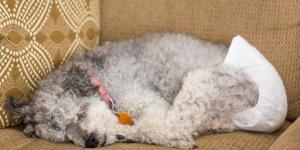Urinary Incontinence In Dogs - Causes and Treatment

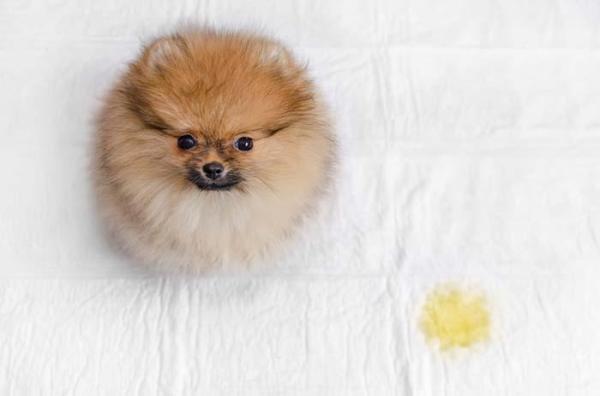

See files for Dogs
Urinary incontinence in dogs is defined as an involuntary evacuation of urine. Urinary incontinence highlights that of a dog losing control over their bladder. In such cases it is normal for a dog to experience, for example, nocturnal enuresis, that is, when a dog urinates in their sleep. You may also notice that if your dog is suffering from urinary incontinence they will urinate more frequently and easily, specifically in situations when they are nervous or stressed.
It is important to understand that our dogs do not do this on purpose and therefore should never be scolded for doing so. In this AnimalWised article we will be discussing both causes and treatment of urinary incontinence in dogs.
Hormonal urinary incontinence in dogs
Hormone-responsive urinary incontinence in dogs is commonly more frequent in sterilized females middle age and upwards. This occurs due to an estrogen deficit, while in males it occurs due to a lack of testosterone. Both of these hormones help an animal maintain their sphincter muscle tone. You will notice that your dog will urinate as usual however, when he/she relaxes or falls asleep, they will involuntarily leak urine.[1]
If you believe that your dog is suffering from hormonal urinary incontinence, consult your veterinarian. A professional will be able to prescribe drugs with the aim of increasing sphincter tone, in turn, treating the problem.
Neurogenic bladder in dogs
Urinary incontinence in dogs can be caused by a neurogenic bladder in dogs. This happens when an injury in a dog’s spinal cord affects the nerves that control the bladder, thereby decreasing in muscle tone and contraction capacity. This decrease results in an overfilled bladder which the sphincter is unable to control, causing an intermittent uncontrolled urine drip.
A veterinarian will be able to measure the contraction force of your dog’s bladder and determine exactly where the damage is located. Generally, this type of canine incontinence is difficult to treat, therefore it needs to be looked at as soon as symptoms are noticed.
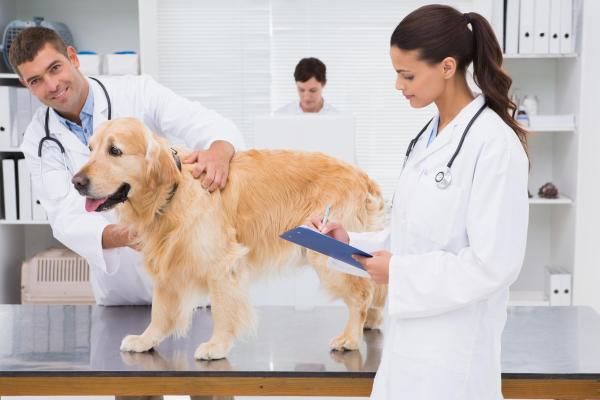
Urinary incontinence due bladder pressure
This type of urinary incontinence in dogs is caused by a partial obstruction to the bladder. This obstruction may occur due to a number of elements, including: urethral stones, tumors or stenosis (body channel narrowing). Although the symptomatology is similar to that of neurogenic incontinence, in this case, the nerves in the bladder are not affected. Treating this problem involves eliminating or removing the cause of obstruction.
Kidney failure in dogs
Dogs suffering from kidney disease cannot control their urine release. Dogs that are experiencing renal failure produce urine in large quantities. They consume more water to recover lost liquid, which is what makes then urinate more and in larger quantities.
If your dog is peeing frequently and live inside of a house, make sure you take them for frequent walks. Kidney disease, whether chronic or acute, will present itself in symptoms such as: thinning, bad breath, vomiting, excessive drinking, etc. Treatment will depend on the symptoms, age, gender and breed of your animal.
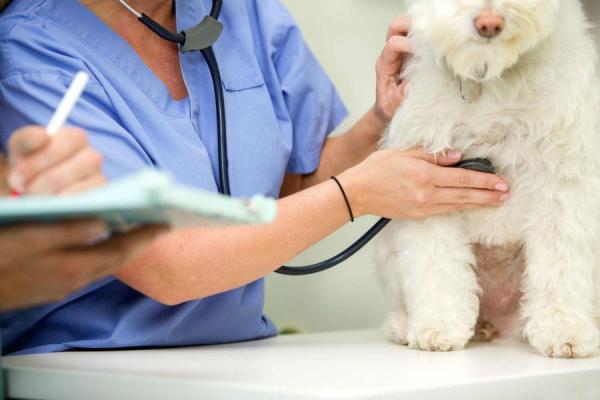
Stress urination in dogs
Stress urination in dogs is easily recognizable. This urinary incontinence will occur in situations where your dog is clearly nervous, scared or stressed. In some cases you might be able to notice that your dog will urinate when scolded or exposed to certain stimuli.
This type of urination occurs when there is a contraction of the abdominal wall muscles, but a relaxation in the dog’s urethra musculature. A veterinarian will most likely prescribe medication to increase muscle tone and/or decrease anxiety. If your dog is suffering from stress urination, you should never scold them, as this will simply aggravate the problem.
Cognitive dysfunction in dogs
Canine cognitive dysfunction mainly affects older dogs. This syndrome occurs due to brain alterations, as a result of aging. A dog suffering from cognitive dysfunction will appear; disoriented, have sleep problems, present compulsive behaviors or experience uncontrolled urination or defecation.
This type of urinary incontinence in dogs has to be diagnosed. It is important to first make sure that the causes are not physical, discarding: diabetes, kidney disease or Cushing’s disease.
In addition, older dogs are also more prone to suffering from musculoskeletal disorders that limit their activity. In these cases an animal doesn't want to move because it feels too pain. In this case, we recommend consulting a doctor as soon as possible.
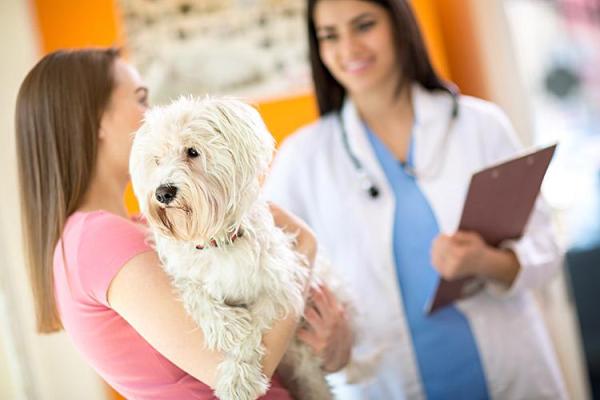
This article is purely informative. AnimalWised does not have the authority to prescribe any veterinary treatment or create a diagnosis. We invite you to take your pet to the veterinarian if they are suffering from any condition or pain.
If you want to read similar articles to Urinary Incontinence In Dogs - Causes and Treatment, we recommend you visit our Other health problems category.


